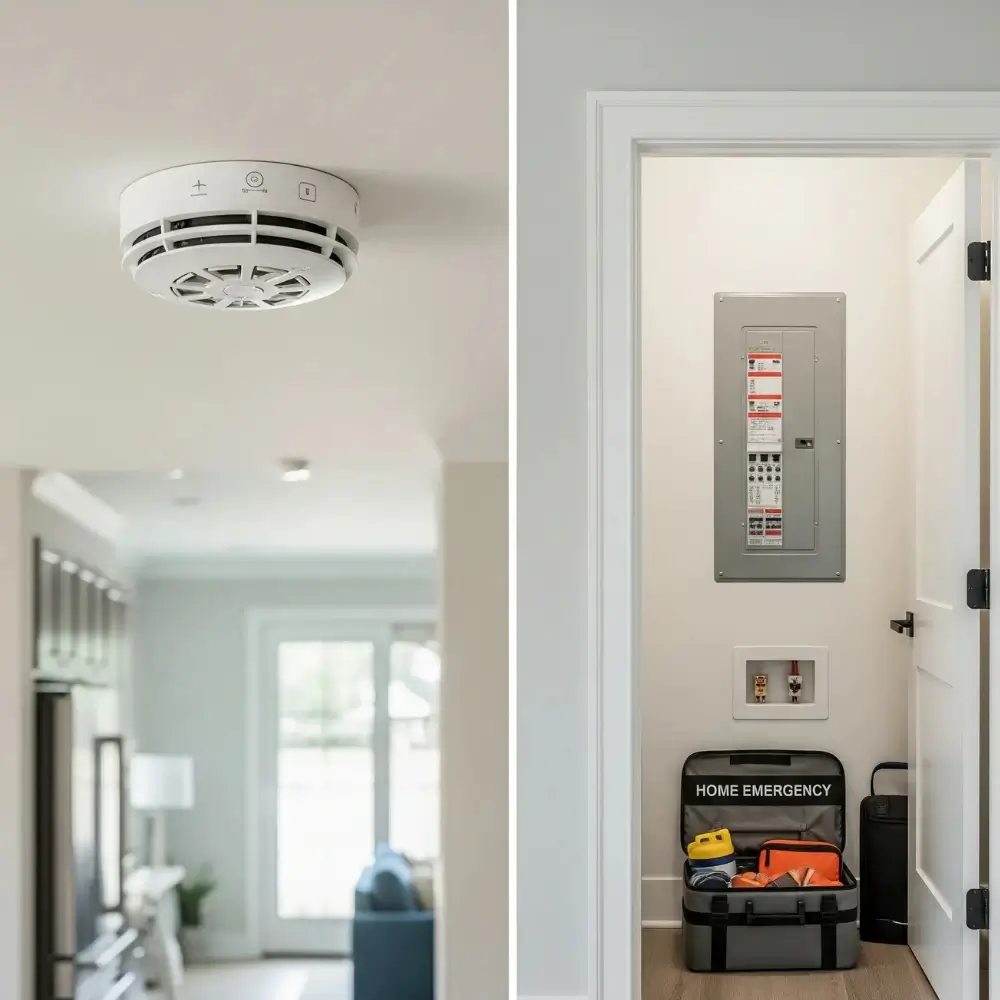Electrical safety doesn’t have to be complicated, but knowing the basics can prevent dangerous situations and help you handle emergencies properly. Most electrical problems give you warning signs, and being prepared for power outages makes life much easier when they happen.
Start by knowing where your main electrical panel is and how to shut off power to your whole house. Label your circuit breakers clearly so you can quickly turn off power to specific areas if needed. Test your GFCI outlets monthly by pressing the test and reset buttons – these outlets can save your life in bathrooms, kitchens, and outdoor areas. Replace any outlets that feel warm, spark, or don’t hold plugs securely.
Watch for warning signs that indicate electrical problems. Flickering lights, frequently tripping breakers, burning smells, or outlets that don’t work properly all need professional attention. Never ignore these signs or try to fix electrical problems yourself unless you’re qualified. When in doubt, turn off the power at the breaker and call an electrician. It’s always better to be safe than sorry with electricity.
For power outages, having the right supplies makes a huge difference. Keep flashlights and extra batteries in easy-to-find places rather than relying on your phone’s flashlight. A battery-powered or hand-crank radio helps you stay informed during extended outages. Consider a portable power station or generator for essential items like medical devices, but never run generators indoors or in enclosed spaces due to carbon monoxide danger.
Surge protection is one of the most important safety investments you can make. Whole-house surge protectors defend all your electronics and appliances from power spikes, while individual surge protectors guard expensive items like computers and televisions. Unplug sensitive electronics during thunderstorms if possible. Remember that power surges can happen anytime, not just during storms,

